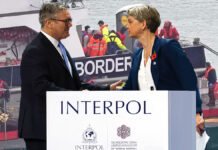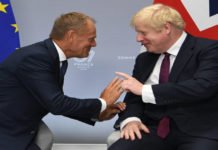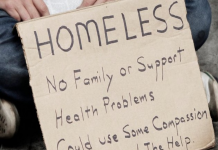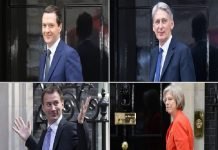A controversial draft law on extradition to mainland China will be suspended, says Hong Kong chief executive Carrie Lam, after widespread anger and protests.
The extradition bill, which would cover Hong Kong’s 7 million residents as well as foreign and Chinese nationals in the city, was seen by many as a threat to the rule of law in the former British colony.
Around a million people marched through Hong Kong last Sunday to oppose the bill, according to protest organisers, the largest since protests in the city against the bloody suppression of pro-democracy demonstrations centered around Beijing’s Tiananmen Square on June 4, 1989.
Demonstrations continued through the week and were met with tear gas, bean bag rounds and rubber bullets from police, plunging the city into turmoil and piling heavy pressure on Lam.
“After repeated internal deliberations over the last two days, I now announce that the government has decided to suspend the legislative amendment exercise, restart our communication with all sectors of society, do more explanation work and listen to different views of society,” Lam told a news conference.
She said there was no deadline, effectively suspending the process indefinitely.
The about-face was one of the most significant political turnarounds under public pressure by the Hong Kong government since Britain returned the territory to China in 1997, and it threw into question Lam’s ability to continue to lead the city.
But it potentially alleviated an unwanted headache for the leadership in Beijing, which is grappling with a slowing economy and a simmering trade war with the United States.
Support for the extradition bill began to crumble on Friday with several pro-Beijing politicians and a senior advisor to Lam saying discussion of the bill should be shelved for the time being.
The extradition bill, which will cover Hong Kong residents and foreign and Chinese nationals living or travelling in the city, has many concerned it may threaten the rule of law that underpins Hong Kong’s international financial status.
Hundreds of thousands of people marched through Hong Kong last Sunday to protest the bill, and street demonstrations through the week were met with tear gas and rubber bullets from police, plunging the city into turmoil and piling heavy pressure on Lam. Another protest is planned for this Sunday.
Hong Kong’s iCable, the South China Morning Post and Sing Tao newspaper all reported that the bill would be suspended on Saturday. TVB and iCable said Lam would hold a news conference on Saturday afternoon.
Calls to Lam’s office went unanswered outside of business hours. Lam has not appeared in public or commented since Wednesday.
Backing down from efforts to drive the bill through the city’s legislature by July would have been unthinkable last week when the law’s passage seemed inevitable as Lam remained defiant.
Lam has said the extradition law is necessary to prevent criminals using Hong Kong as a place to hide and that human rights will be protected by the city’s court which will decide extraditions on a case-by-case basis.
Opponents, including leading lawyers and rights groups, say China’s justice system, where courts are controlled by the Communist Party, is marked by torture and forced confessions, arbitrary detention and poor access to lawyers.
Last Sunday’s protest in the former British colony was the biggest political demonstration since its return to Chinese rule in 1997 under a “one country, two systems” deal. The agreement guarantees Hong Kong’s special autonomy, including freedom of assembly, free press and an independent judiciary.
Many accuse China of extensive meddling since then, including obstruction of democratic reforms, interference with elections and of being behind the disappearance of five Hong Kong-based booksellers, starting in 2015, who specialised in works critical of Chinese leaders.
The extradition bill has spooked some of Hong Kong’s tycoons to start moving their personal wealth offshore, according to financial advisers, bankers and lawyers familiar with the details.
This is a "Pay as You Feel" website Please help keep us Ad Free.
You can have access to all of our online work for free. However if you want to support what we do, you could make a small donation to help us keep writing. The choice is entirely yours.

























